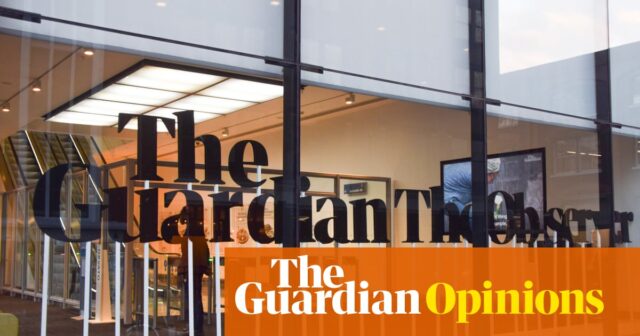The strategic direction of the Observer was set several years ago – to enhance its position as the leading liberal voice in the UK Sunday print market. This goal has been achieved, but in such a challenging media environment it cannot stand still. The Observer must develop a sustainable digital position with a younger audience to ensure it can continue to be successful in the years ahead.
After extensive internal and external consultation, the Scott Trust has decided this would be best achieved outside the Guardian Media Group, and we have in principle approved the sale of the Observer to Tortoise Media.
That decision was based on several non-negotiable conditions for the Scott Trust.
We would stay on as a part-owner of the Observer, with a seat on editorial and commercial boards. The Observer would have to secure long-term funding from partners willing to invest in more journalists and journalism. And finally, all owners would have to embody the values of editorial independence, press freedoms and liberal journalism that have been part of the Observer’s ethos since we bought it in 1993.
Yesterday’s deal will see the Observer get more resources, as well as benefit from fresh ideas and expertise. Under the new ownership structure, the Observer will be the sole title in the joint entity and have funds available to invest. Its identity and values have been included in Tortoise’s governance to align with ours: “To have a material positive impact on society and the environment and to safeguard journalistic freedom and liberal values.”
The Scott Trust will stay on as an owner, becoming one of the largest shareholders in Tortoise. The joint organisation will be overseen by a board and an editorial board and both entities will have a majority of independent directors. The Scott Trust will be represented on both the commercial and the editorial boards. These measures satisfy the strict criteria we set ourselves at the outset of this process.
Since the Scott Trust was set up in 1936, we have faced challenges and opportunities to champion progressive liberal journalism. Progress towards that goal has not always been straightforward. Now we are embarking on a new phase for both our titles.
We acknowledge that the last few months have been challenging for the Observer’s management and staff. But we have listened to their views and addressed them in the conditions of the deal announced yesterday.
In arriving at our conclusion, we have also had the interest of the Guardian in mind. In 1959, the Guardian lost the word “Manchester” from its title, as its audience grew from regional to national. Today, the title is pursuing a strategy of becoming global, with thriving operations in the US and Australia.
The UK market is and will continue to be an important market for us. However, the reality is that it cannot support our editorial ambitions alone. We need to succeed in attracting a wider audience outside Britain.
In the last financial year some 35% of the title’s income originated outside the UK, including 56% of digital reader revenue. Last year the Guardian Media Group had an operating cash deficit of £36.5m which was funded by the Scott Trust, as the trust has as its primary responsibility to secure the financial and editorial independence of the Guardian in perpetuity.
Some voices claim we should have paused the transaction to allow more time for considerations. I disagree. Over the course of this year, the status quo and possible futures for our two papers have been analysed by executives, outside consultants, and the boards of GMG and the Scott Trust.
We recognise that the Guardian and the Observer face different challenges which need different solutions. Since mid-September when a possible transaction was made public, we have held numerous consultations with the unions, staff and external experts, including previous editors, to listen and receive input and to explain our perspective. This has been important, since rumours and half-truths have flourished.
More analysis does not equate to better analysis. We did not agree to this deal until we were satisfied with it. Now it is time to renew.
Change in a century of the Scott Trust’s existence is inevitable, but progress is not always linear. In news, we must change to carry on serving our readers. The Observer is the oldest Sunday newspaper in the world but it hasn’t existed for so long by standing still. The one constant has been its journalists. And the Scott Trust will still be there to support them as the title moves forward receiving the attention it deserves.
I’m confident this next chapter will give the Observer and its team a fresh start while staying true to its values, safeguarding an important liberal newspaper in the UK.






